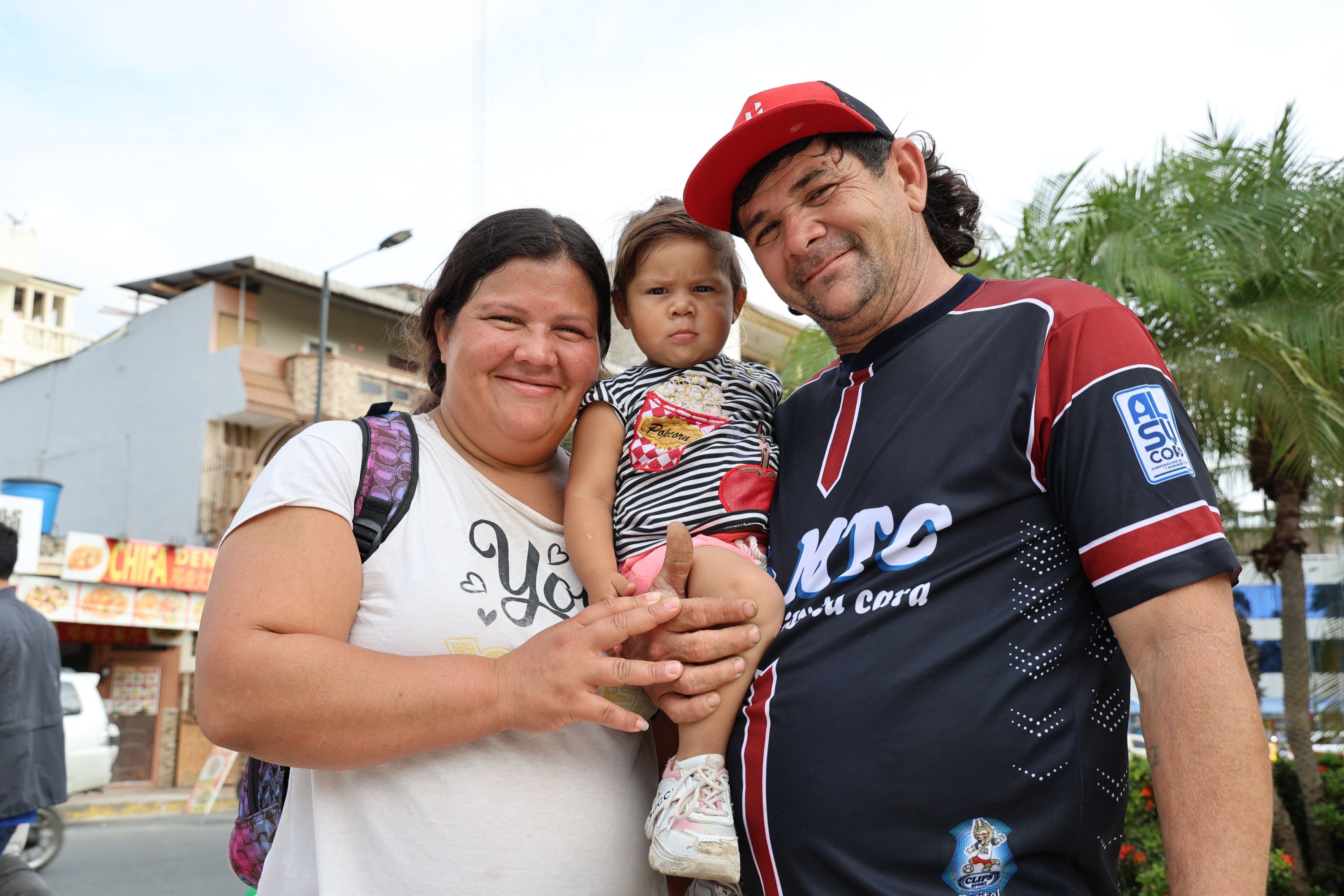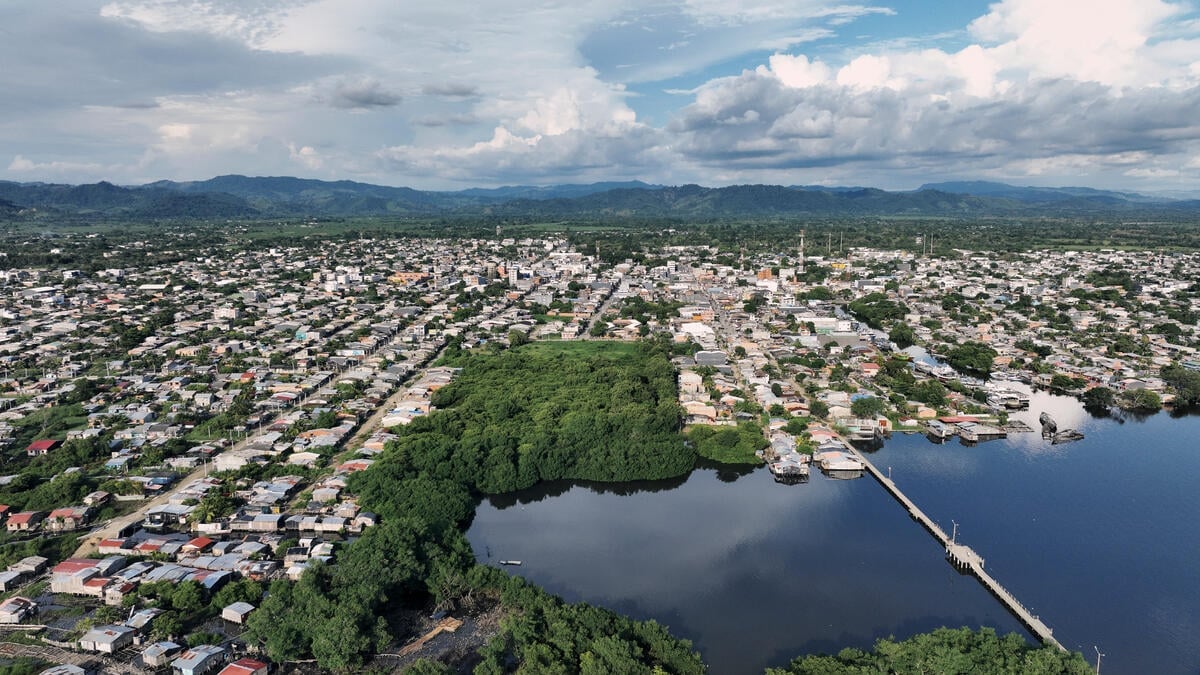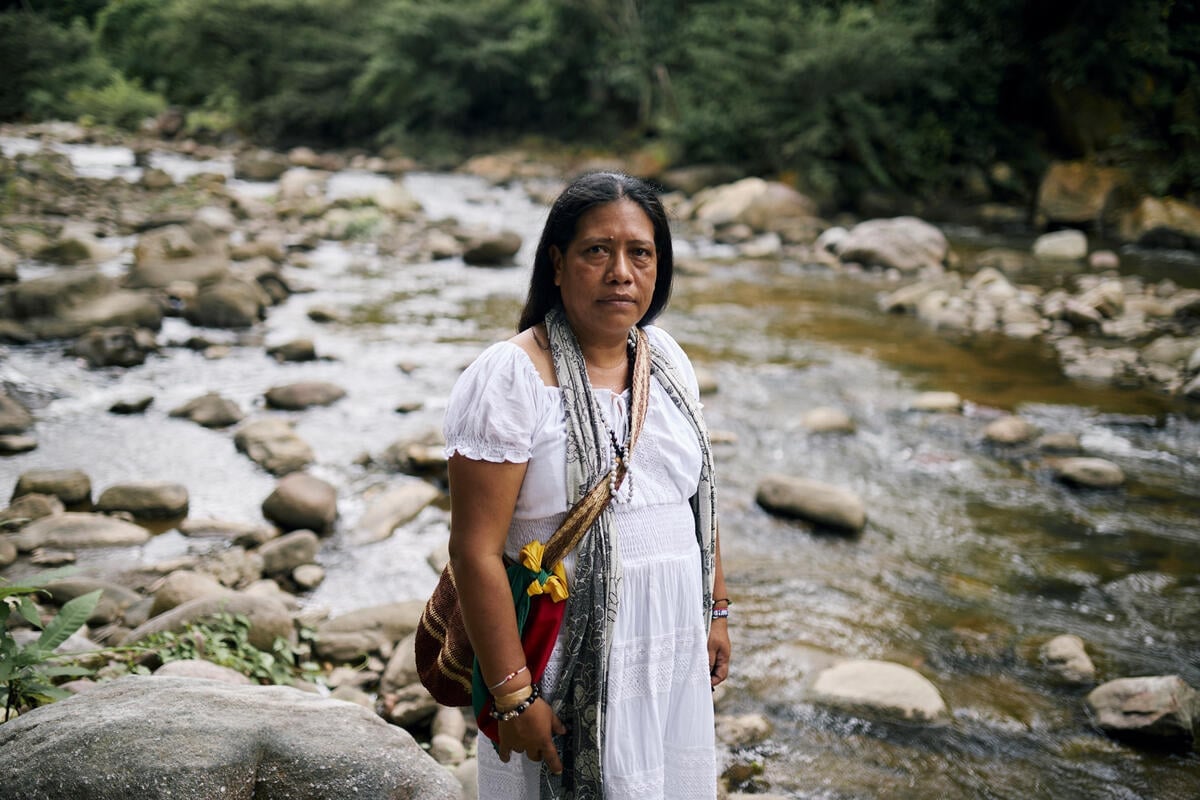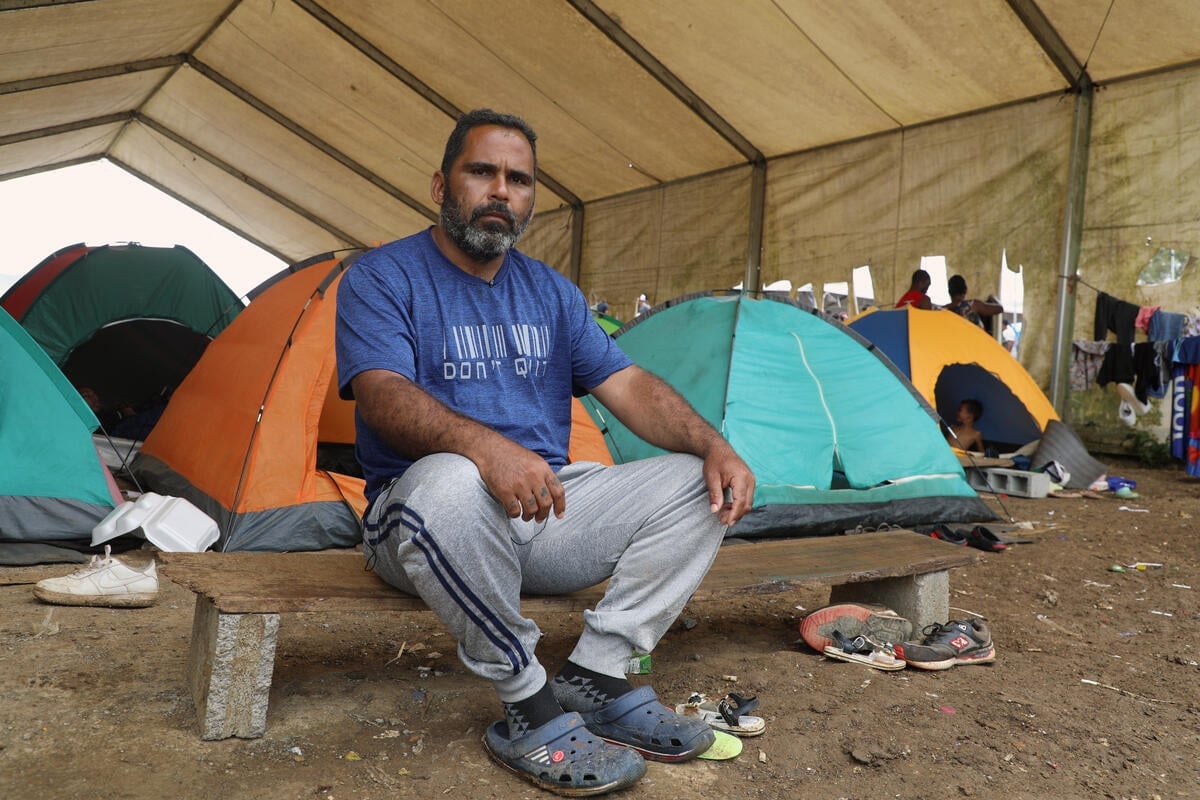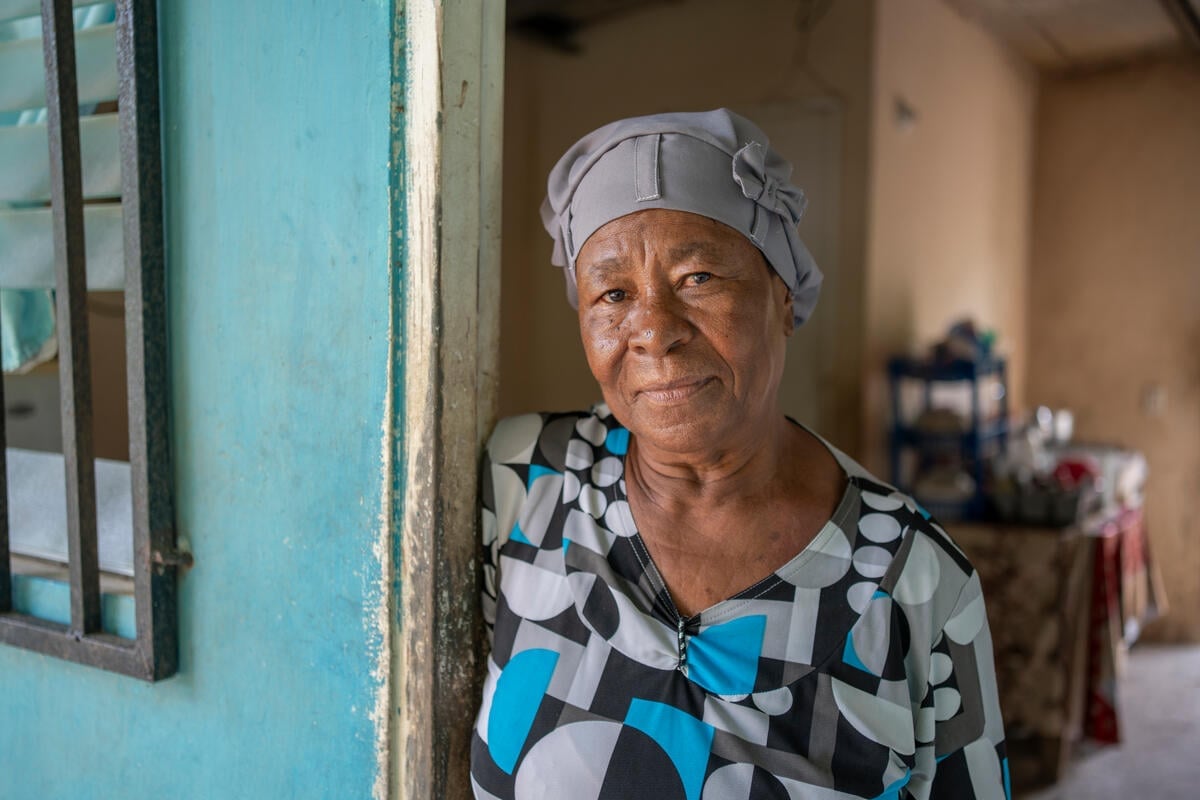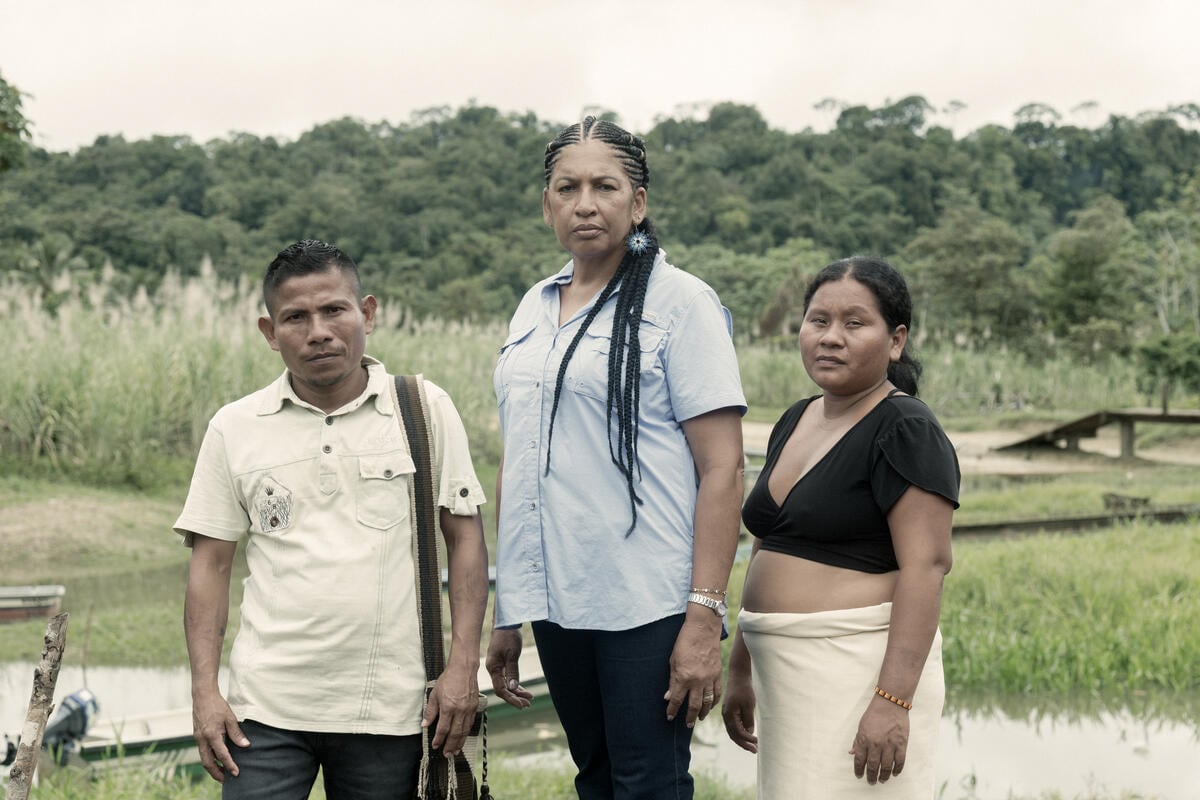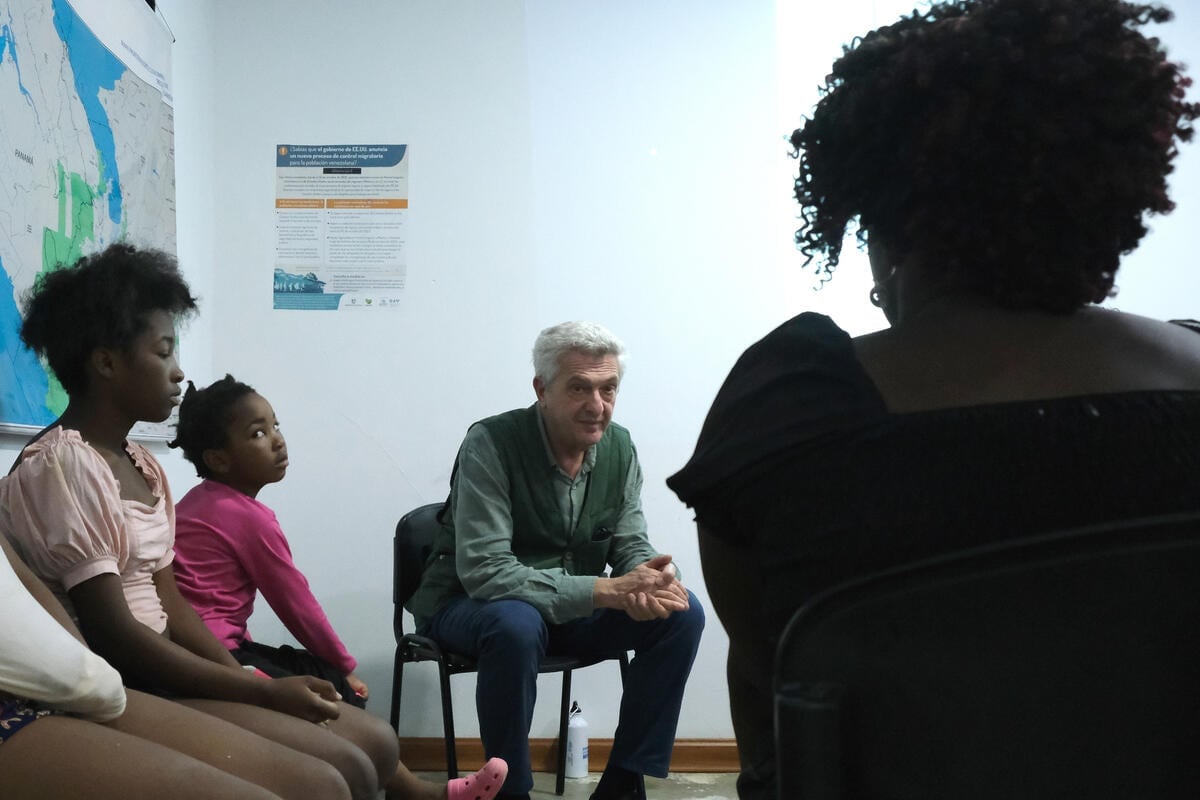Assistant High Commissioner in Colombia
Assistant High Commissioner in Colombia
Assistant High Commissioner Kamel Morjane, on the first leg of a week-long mission to Colombia and Ecuador, has made a two-day visit to the province of Chocó, in western Colombia. This is one of the poorest and most isolated regions of the country and Mr. Morjane saw the devastating impact of internal displacement and blockades by armed groups on thousands of Colombian civilians in the area.
On Sunday, he visited the town of Bellavista (Bojayá), where 119 civilians died in May 2002, after a missile hit the church where they were sheltering from firefights between irregular armed groups in the town. Mr. Morjane visited the church, which still bears the scars of the attack, and then walked the streets of the town to talk with local residents. He was accompanied by the UN Humanitarian Coordinator in Colombia, Alfredo Witschi-Cestari, UNHCR's Director for the Americas, Hope Hanlan and the UNHCR Representative in Colombia, Francisco Galindo.
He also met with Afro-Colombian and indigenous leaders, whose communities make up 95 percent of the population in rural areas of this part of Colombia. Mr. Morjane said the meetings helped him to understand the ethnic dimension of internal displacement in Colombia.
Yesterday (Monday), the Assistant High Commissioner visited the town of Tangui, one of several communities suffering the effects of a blockade by armed groups along the Atrato river in north-western Colombia. At the inauguration of a UNHCR-funded community centre, Mr. Morjane condemned blockades as a very serious transgression of international humanitarian law and human rights and called on all armed groups to stop them immediately.
Community leaders said they felt neglected by the central government and were unable to enjoy their full rights as Colombian citizens. The Assistant High Commissioner declared that UNHCR's presence shows our support for the peaceful resistance of these communities. He added that UNHCR will continue to assist them in improving the work of their organisation so they can better defend their rights.
Today, Mr. Morjane will share his impressions and messages received from the communities with Colombian President Álvaro Uribe and other government officials. He is also expected to insist that internal displacement is a violation of an individual's fundamental rights, and affirmative action by the state is required to re-establish the exercise of those rights. Mr. Morjane said that for UNHCR, a person ceases to be internally displaced not with the passage of time, but when he or she has regained these rights. He said he will stress the critical role that the state has to play in enabling the restitution of the rights of internally displaced persons.
Mr. Morjane is asking the government, NGOs and organisations for the internally displaced to continue their support for the U.N. Humanitarian Alliance aimed at improving the coordination of humanitarian efforts on behalf of millions of internally displaced Colombians. After his visit to Colombia, Mr. Morjane said he will continue to advocate on behalf of IDPs and vulnerable populations through his contacts with concerned governments and relevant UN partners, including the UN Special Rapporteur on the situation of the human rights and fundamental freedoms of indigenous people, Rodolfo Stavenhagen. Mr. Stavenhagen is expected to visit Colombia later this year.
The Assistant High Commissioner is scheduled to travel to Ecuador tomorrow for a three and a half day visit before returning to Geneva this weekend.


